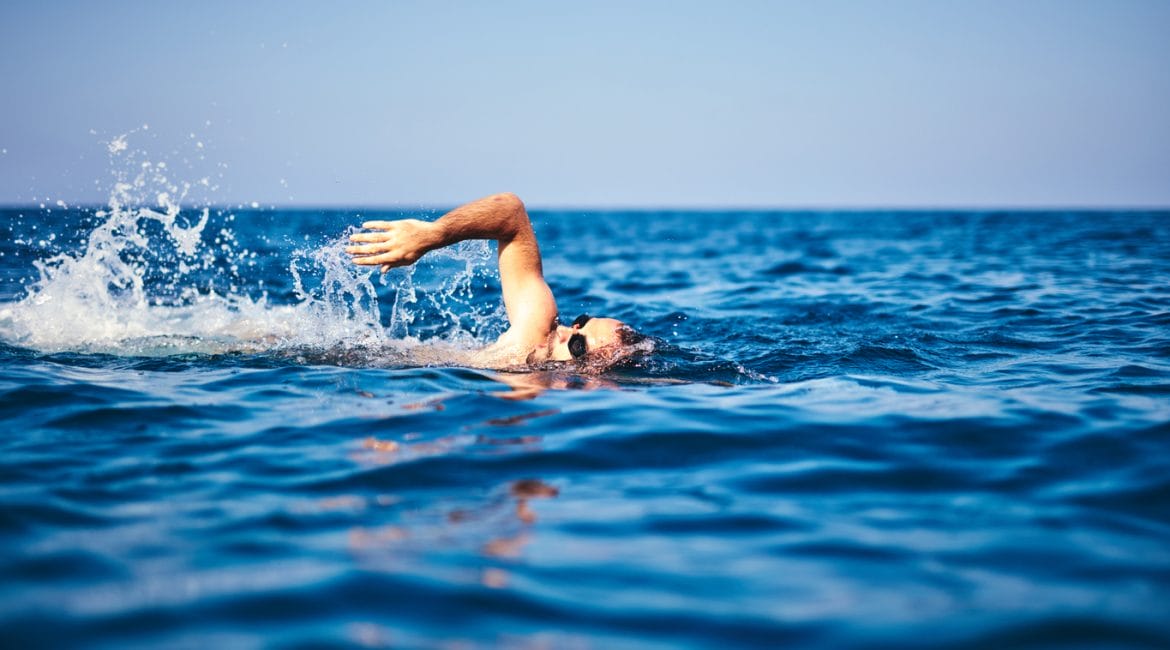I’ve been working hard for months to prepare for the “Swim to the Moon” marathon swim in Michigan. For those who do not know, a marathon swim is a 10K swim, not a 26.2 swim.
According to the Long Swims Database, there have been 91,000 marathon swims by 33,000 swimmers from 141 countries.
My Long Distance Open Water Swim Experience
I swam the Maggie Fischer Memorial Cross Bay Swim in 2019. Because of the strong current on the swim day, I swam 7 miles instead of the 5.5 miles.
After COVID and the world reopened, I planned on swimming the marathon swim at “Swim to the Moon” by Epic Races but ended up doing the 5K instead.
I also swam 3 miles at Steelman a year or so ago.
But I never officially swam a 10K. That is why this race has been important to me.
Swimming in the Open Water and the Pool
I’ve been doing my long distance swimming in the open water and the pool. While swimming, I have noticed I am having hallucinations and wondered if I was loosing it. After about 5,000 yards or so, I start to see things on the horizon of the water. I also hear things like people talking or just random sounds. The other day, I even felt like things were on me or touching me. It was a very strange sensation.
After doing some research on the internet, I found that hallucinations are a thing.

According to the World Open Water Swimming Association, “it happens from a combination of dehydration, sleep deprivation, and prolonged exposure to saltwater can create a dreamlike state that can lead to hallucinations. These hallucinations can be as vivid as reality and can cause negative reactions. They can involve marine life, imaginary creatures, or a transformation of oneself, one’s crew, or other people in one’s life. For example, record-breaking swimmer Diana Nyad hallucinated during her 53-hour swim from Cuba to Florida, describing seeing a scene from The Wizard of Oz while swimming at night.”
What Can You Do About It?
If you are swimming long and are experiencing hallucinations, here are some tips:
- Stay Hydrated and Fueled — Dehydration and low blood sugar can contribute to hallucinations. Make sure you’re drinking enough fluids and consuming energy gels or snacks during your swim.
- Get Enough Rest — Fatigue can exacerbate hallucinations. Ensure you’re well-rested before your swim and consider taking short breaks if you’re swimming for an extended period.
- Practice Mental Techniques — Techniques like visualization, mindfulness, and positive self-talk can help keep your mind focused and reduce the likelihood of hallucinations.
- Swim with a Buddy — Having a swim partner can provide reassurance and help you stay grounded. They can also monitor you for signs of distress.
- Acclimate Gradually — If you’re new to long-distance open water swimming, gradually increase your swim duration to allow your body and mind to adapt.
- Stay Calm — If you do experience hallucinations, try to stay calm and remind yourself that they are not real. Focus on your breathing and stroke to maintain a steady rhythm.
For me, I’ve been riding with it. They happen and I just try to ignore it or just go with it.
If you want to swim long distance, don’t let this distract you. It may happen but if you are aware of it, you will be able to use some of the strategies above to help you go the distance.
Happy swimming!






